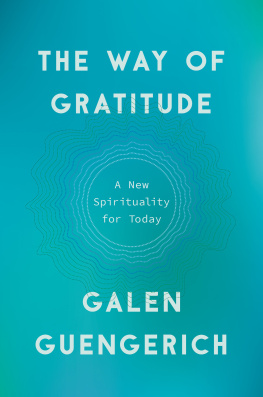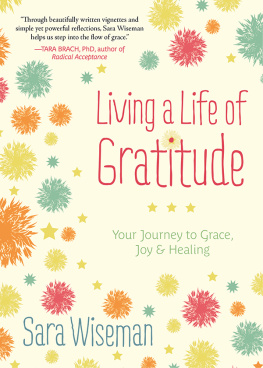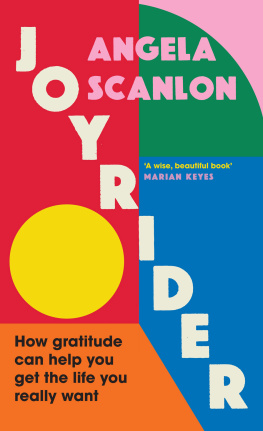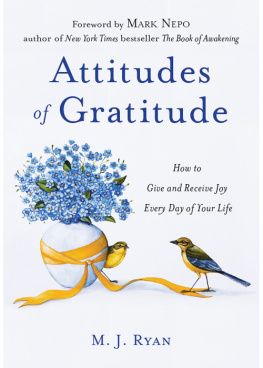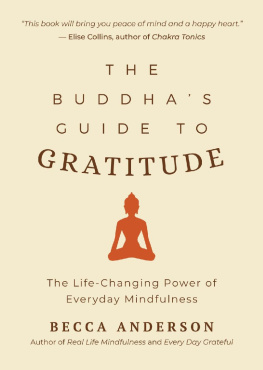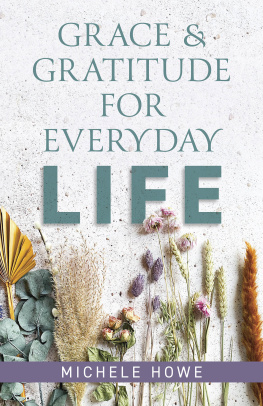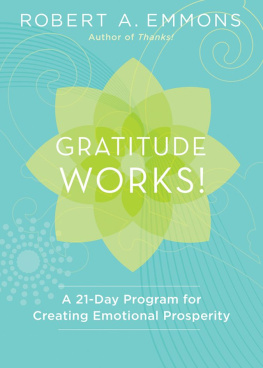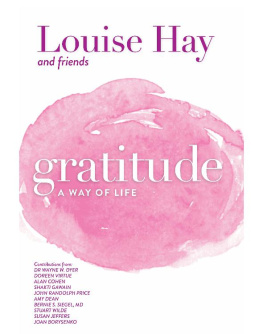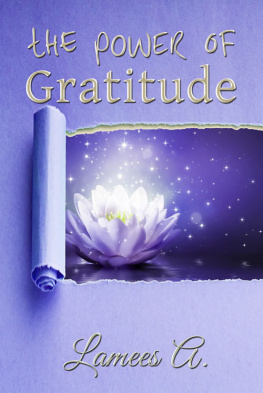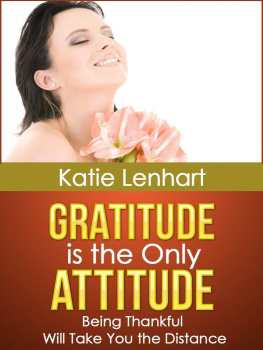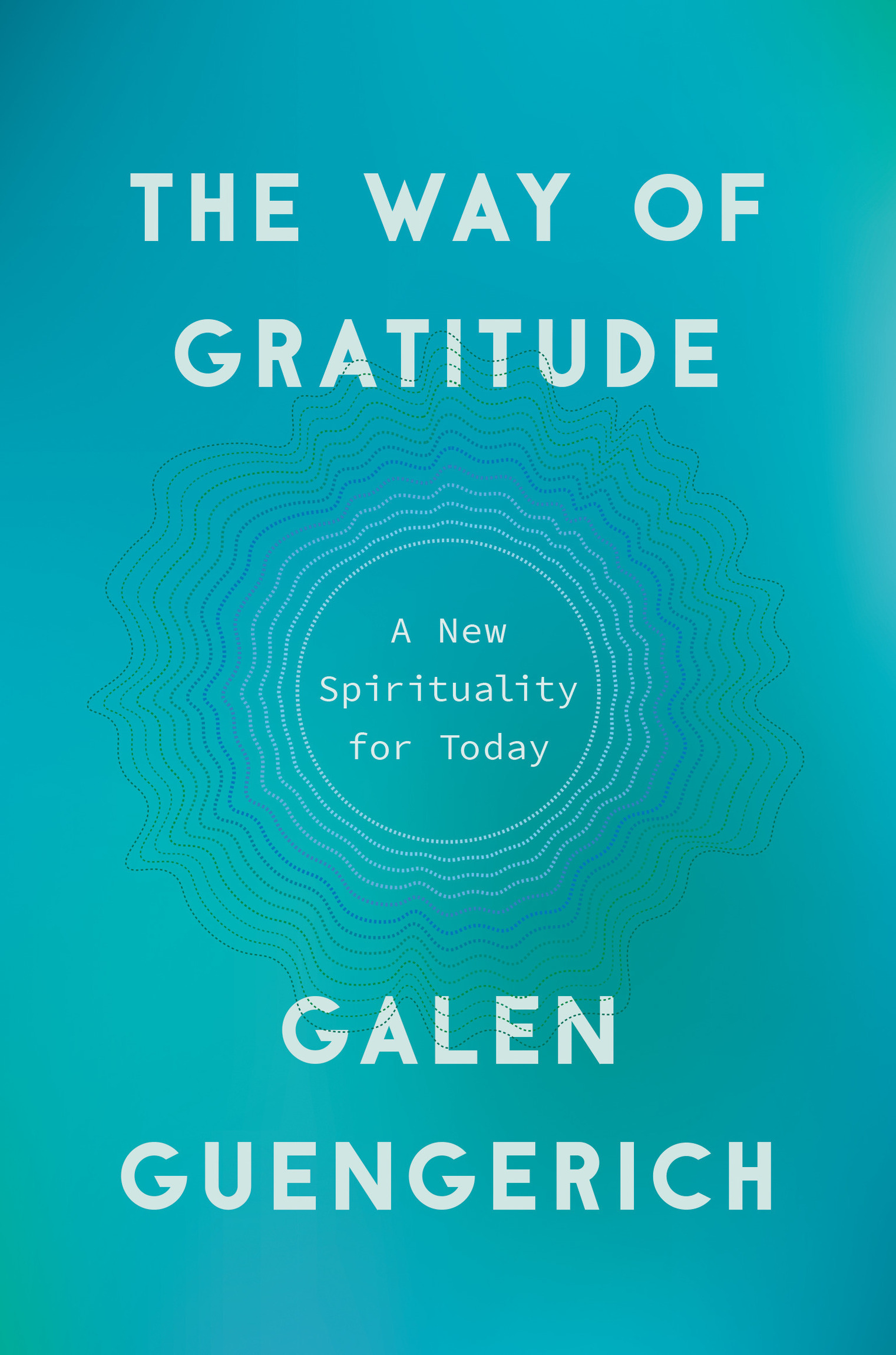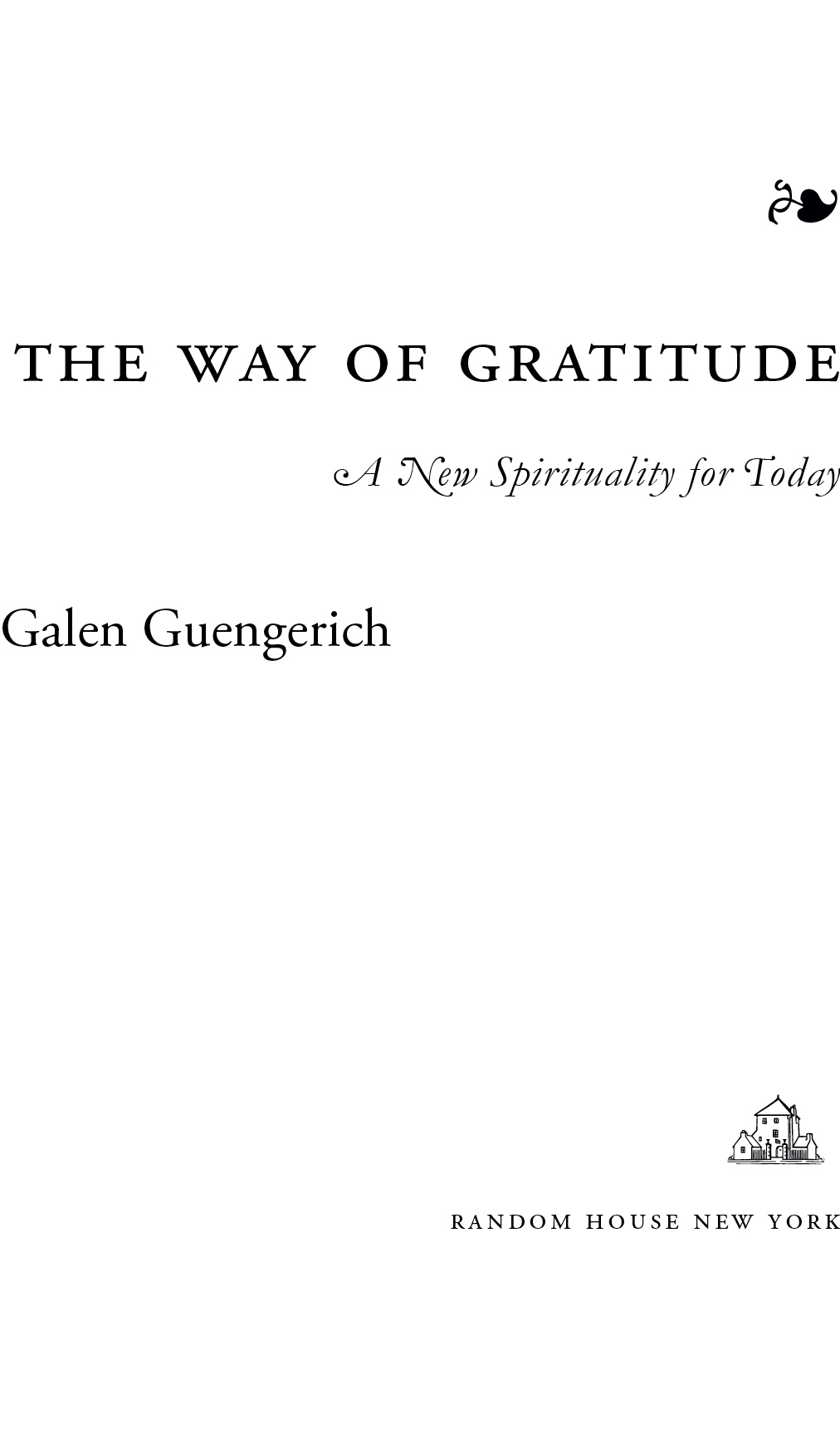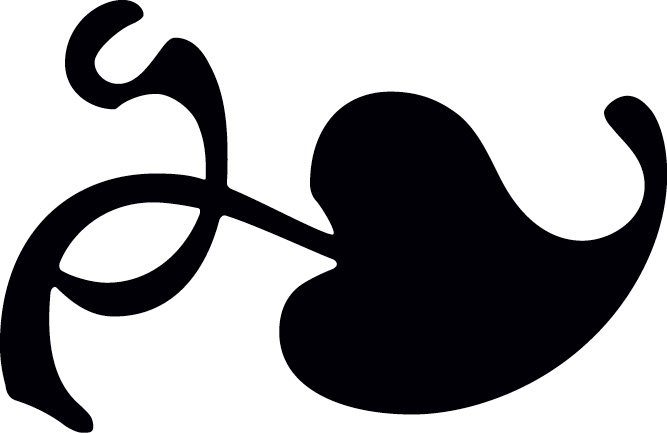All rights reserved.
Published in the United States by Random House, an imprint and division of Penguin Random House LLC, New York.
R ANDOM H OUSE and the H OUSE colophon are registered trademarks of Penguin Random House LLC.
Permission credits can be found on .
Names: Guengerich, Galen.
Title: The way of gratitude: a new spirituality for today / Galen Guengerich.
Description: New York: Random House, 2020.
Identifiers: LCCN 2019045307 (print) | LCCN 2019045308 (ebook) | ISBN 9780525511410 (hardcover) | ISBN 9780525511427 (ebook)
Subjects: LCSH: Gratitude. | Spiritual life. | Interpersonal relations.
Classification: LCC BJ1533.G8 G84 2020 (print) | LCC BJ1533.G8 (ebook) | DDC 179/.9dc23
that life becomes rich.
P ROLOGUE
T HIS IS A book for spiritual seekers. Whether or not you have ever been part of a religious community, if you have ever sought a deeper sense of your lifes meaning, a more compelling understanding of your lifes purpose, or a more engaging experience of joy, then this book is for you.
Since I will be your guide along this journey of discovery, I begin in the first chapter by introducing myself and my own journey to you. As I often say, it has taken me from Mennonite to Manhattan, both literally and metaphorically.
When I left the Conservative Mennonite Church in my late twenties, I had no idea that my newfound freedom would prove to be such a daunting challenge. To that point, I had mostly done what I was toldby my parents, by various church authorities, and ultimately by the dictates of the Bible. I didnt have to decide what to believe or how to live. My path had been signposted by someone else.
Once free from the constraints of my upbringing, I began to realize that I was now in charge. I had to make my own signposts.
I had to decide how to live from day to day, a freedom I had long sought. But I also had to decide more fundamental things, such as what to believe and how to make sense of my life in terms of its larger purpose. How do I go about constructing a meaningful life? To what should my day-to-day activities add up over time? What about the big picture: How am I related to, and perhaps even responsible to, the people around me and the natural world? As I began to chart my own way, I wrestled with these questions.
Some years ago, on a visit to Israel, I spent some time with Natan Sharansky, a former Soviet chess prodigy who had spent time in prison because of his human rights activism. The Soviets eventually allowed Sharansky to emigrate to Israel, where he became involved in politics and continued his human rights work.
Sharansky told me that he learned the most important lesson of his life while in prison. People want two things, he said: They want to be free and they want to belong. But most people think freedom comes first and then belonging follows. What he realized in prison was that the opposite is true: You need to belong in order to be free. He illustrated his point by saying that you need to belong to a team in order to play in a soccer game, just as you need to belong to an orchestra in order to play a symphony. In the same way, he said, you need to be part of somethingwhether its a family, a faith community, a people, a cause, or a countryin order to be free to make something of your life. In order for your life to have meaning and purpose, you need to belong.
This book is about my search for a new way to belongnot only to my own family of choice, which I eventually found, and not only to a new faith community, which I also eventually found, but to everything. Once I declared myself to be more a child of science than of scripture, and therefore more beholden to reason than to revelation, I needed a way to understand my life as meaningful in the modern world.
Part One of this book describes the human search for meaningwhy its important to us, how human beings have historically understood their lives as meaningful, and why so many of us face a crisis of meaning today. I explore the burgeoning interest in being spiritual but not religious, then focus on what I believe is the key to spirituality, which is the practice of openness. As we open ourselves, we begin to realize in a new way how much we rely on the people and world around usand how much they rely on us. The appropriate spiritual response to this awareness, in my view, is gratitude, which I describe as our gateway to meaning. As we begin to develop gratitude as a way of life, we find ourselves experiencing not only a deeper sense of our lifes meaning and purpose but also a more abiding sense of joy.
Part Two explores what I describe as the seven hallmarks of gratitude, which map our relationships to the people and world around us, and also describe our responsibilities in return. The way of gratitude is a journey toward increasing reciprocity with everyone and everything around us. The more aware we become of how much we rely on other people and on the natural world for everything that makes our lives possible and, if we are fortunate, sometimes wonderful, the more committed we become to making their lives better in return. I call these commitments gratitude goals.
The final part of the book explores how we make the way of gratitude a practicea spiritual practice. The only way we can be certain that the most important things in our life take precedence is to make them a regular part of our daily lives. In order to learn how to play the piano well, we need to practice the piano each day. The same is true of our spiritual lives. In order to develop a spiritual life that is meaningful, purposeful, and joyful, we need to undertake a way of life that makes these commitments an essential part of our daily lives.
As we make our way along this spiritual journey, I have included some poetry as an epigraph to each chapter. Why poetry? The purpose of poetry isnt merely to inform, or instruct, or explain, or even entertain. Its purpose is to inspireinspire us to feel alive in a different way, inspire us to open ourselves to new experiences, inspire us to take risks. At its best, poetry distills an insight into a potent experience of transformation. Good poetry changes us.
Poetry has a special role to play when it comes to spirituality. Its my view that we need a touchstone to anchor our experience of grappling with the human desire to find a meaningful place for ourselves in the larger drama of time and history. Each of the established religious traditions of the West has its own scripture: the Torah of Judaism, the Bible of Christianity, the Quran of Islam. Likewise, one could say that the scripture of modern science is data, the touchstone of discovery and decision. For me, poetry is the scripture of contemporary spiritualityits touchstone. Poetry has long been an essential part of my own spiritual journey, and its an essential part of this book. I encourage you to read the passages of poetry carefully and mull them over as you begin each chapter.

